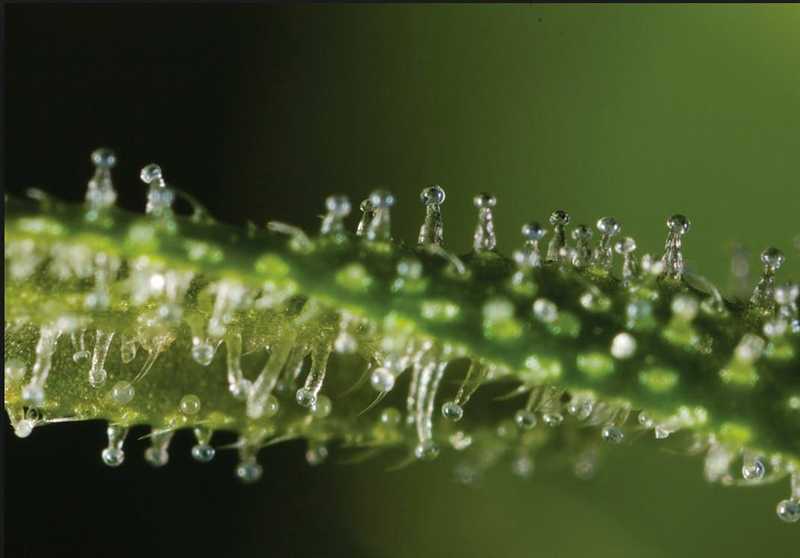When considering THC vs. CBD, many medical marijuana consumers may wonder which cannabinoid will bring them the relief that they're looking for. THC and CBD are the two most prevalent cannabinoids found in the marijuana plant. Though they’re just two out of the over 60 cannabinoids found in cannabis, they’re present in the largest quantities across all of the different varieties of the cannabis plant. Most cannabis plants have higher levels of THC than CBD, but with selective breeding, there are now more varieties of CBD-heavy cannabis on the market than ever before.
What Is Cannabidiol (CBD)?
Cannabidiol, most commonly known as CBD, is a non-psychoactive cannabinoid. CBD, unlike THC, can be derived from hemp or cannabis, though it’s often much more potent when it’s derived from cannabis. A study in the British Journal of Pharmacology found that CBD lacks the psychoactive effects of THC because it doesn’t act on the same pathway in the body as THC does.
CBD also has the ability to reduce the “high” caused by THC. A Frontiers in Psychiatry study found that CBD can counteract the negative effects of THC, which could help medical marijuana users quell the “high” associated with cannabis.
CBD can be used to help with a variety of medical issues. CBD provides the anti-inflammatory qualities of cannabis. CBD’s anti-inflammatory qualities make it effective at relieving pain or reducing skin irritations in conditions such as psoriasis. The anti-inflammatory qualities of CBD also mean it can be effective in helping decrease stomach pain by reducing contractions in the intestines.
In addition, CBD is an anti-emetic, meaning it can reduce nausea and vomiting. CBD is antibacterial and has shown promise in slowing bacterial growth within the body. CBD can also act as an antiproliferative, meaning that it’s believed to be able to slow unwanted growth of cells, such as cancer cells.
CBD also has the ability to reduce seizures and muscle convulsion or spasms, making it effective in helping patients with seizures or muscle spasms caused by conditions such as Parkinson’s disease. CBD serves as an immunosuppressant, which could help patients who suffer from overactive immune systems caused by autoimmune diseases.
CBD is successful at promoting healthy bone growth and can help reduce vascular tension and artery blockage. It can also help reduce blood sugar, making it helpful for patients with diabetes or other conditions that require monitoring blood sugar levels. Due to its anxiolytic properties, CBD can help reduce anxiety for people who have general anxiety disorders or conditions such as PTSD.
What Is Tetrahydrocannabinol (THC)?
Tetrahydrocannabinol, or THC, is the most common and well-known cannabinoid found in the marijuana plant. Often associated with its psychoactive properties, THC can be very helpful in different medical applications. THC’s pain-relieving properties make it effective for patients managing their with chronic pain.
THC can also help ease stomach discomfort through the reduction of nausea and vomiting. Alternatively, THC can also stimulate appetite. The combination of reducing stomach discomfort and stimulating appetite can make THC very helpful for patients who suffer from chronic stomach issues such as Crohn’s disease or patients who experience adverse effects from treatments for conditions such as cancer. THC can also aid in reducing muscle spasms, helping patients with conditions such as Parkinson’s disease control excessive muscle movement.
What Role Do Other Cannabis Compounds Play?
When it comes down to it, it really isn't about only going with THC vs. CBD—meaning, isolating one cannabinoid versus the other. Cannabis is much more effective in the whole plant versus when one cannabinoid is used alone. In fact, it’s the interactions taking place among the various cannabinoids—called the entourage effect—that help drive positive effects in the human body.
Though THC and CBD are the most prominent, many other cannabinoids such as tetrahydrocannabinolic acid (THCA) and cannabichromene (CBC) can provide a range of benefits. Studies have found THCA to have anti-inflammatory, neuroprotective, anti-emetic and antiproliferative properties, while CBC appears to be an effective antimicrobial, anti-viral, anti-depressant and analgesic compound.
THC and CBD work in harmony on the endocannabinoid system in the body. For example, having a balance of THC and CBD in a strain of cannabis can allow for the highly successful pain-relieving aspects of THC with less of the psychoactive effect—because non-psychoactive CBD counteracts THC.
As well, terpenes—compounds that lend the various cannabis plant their fragrance and flavour—number well over 100, and interact with the endocannabinoid system as well. They work in concert with cannabinoids in a wide range of activities—from promoting sleep to elevating mood and providing stress relief.
Do you have questions about CBD vs THC? Go to HelloMD's Answers page where you can connect with a health practitioner or well-informed member of our community who will respond to your queries.
